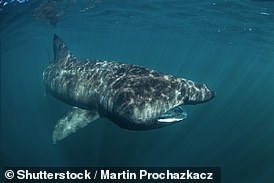Shocking moment endangered basking shark is hit by boat in Ireland’s National Marine Reserve caught on camera – and scientists don’t know if the shark made it out alive
Scientists have captured the shocking moment a boat collided with the UK’s largest shark.
Scientists attached a ‘shark Fitbit’ with an integrated camera to the endangered shark as it swam off the coast of County Kerry in Ireland.
Just six hours later, the 23-foot-long female was struck by a boat passing through an area recently designated as the country’s first national marine reserve.
When the ‘Fitbit’ was released seven hours later, the shark had still not resumed its normal activities, raising fears that the rare female, which was already sexually mature, had been killed.
Taylor Chapple of Oregon State University, one of the lead authors of a paper describing the incident, says: ‘Unlike whales, basking sharks often sink when they are killed, so it is very difficult to measure mortality rates. And even in this case, where the attack was not immediately fatal, we do not know for sure what happened to the female that was struck.’
Scientists have captured the shocking moment an endangered basking shark is hit by a boat
A team of scientists captured the images during an effort to collect behavioral and physiological data on the mysterious basking shark.
Basking sharks can grow up to 12 metres long and weigh up to 6 tonnes, making them the second largest fish in the ocean and the largest shark in the UK.
Scientists have equipped a shark with an “animal-borne camera and inertial measurement unit” that can record its activity level and movements.
What the researchers ultimately captured was the first hard evidence of what happens when a large marine animal is hit by a boat.
The ‘Fitbit’ captured the shark swimming along the surface of the water and then suddenly diving when the front of a boat collided with the shark’s side.
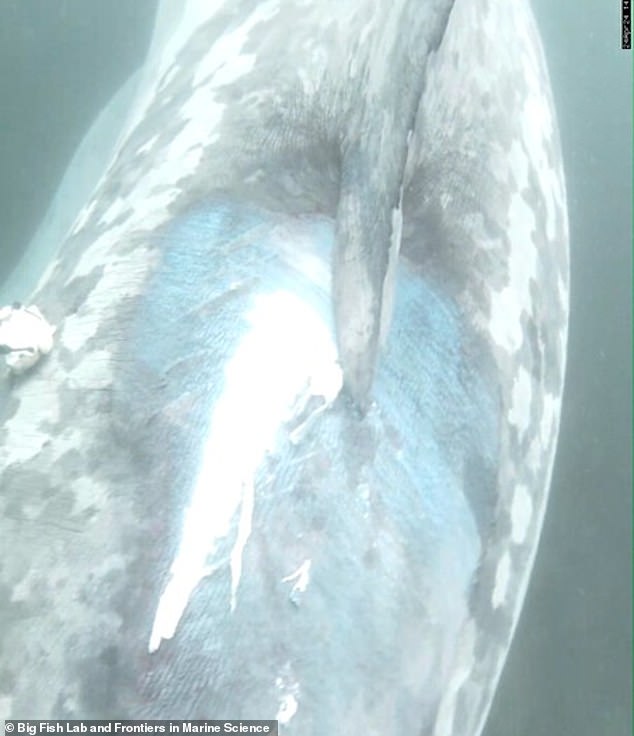
The basking shark was fitted with a ‘shark Fitbit’ just six hours before it was struck by a boat while swimming through the Marine National Park off the coast of County Kerry
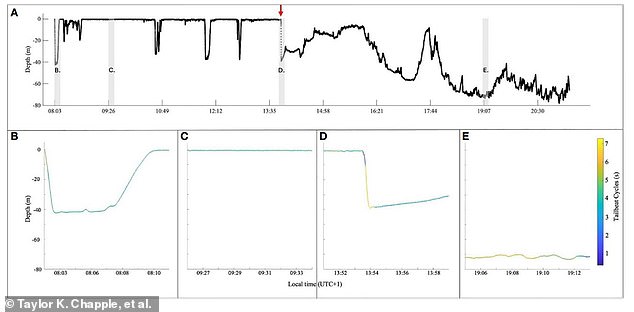
As the black line shows, the shark suddenly dived after being hit by the boat (marked at D) and made its way to deeper, offshore waters.
Immediately after the boat hit the side of the basking shark, it immediately dived to the seabed and disappeared into deeper water off the coast.
The footage clearly shows damage to the shark’s skin, as well as paint streaks and abrasions left by the boat.
After the shark dived into deep water, its activity level decreased significantly until the ‘Fitbit’ came loose seven hours later.
Although the collision was not initially fatal, scientists are unsure based on the latest data whether the shark survived or later succumbed to its injuries.
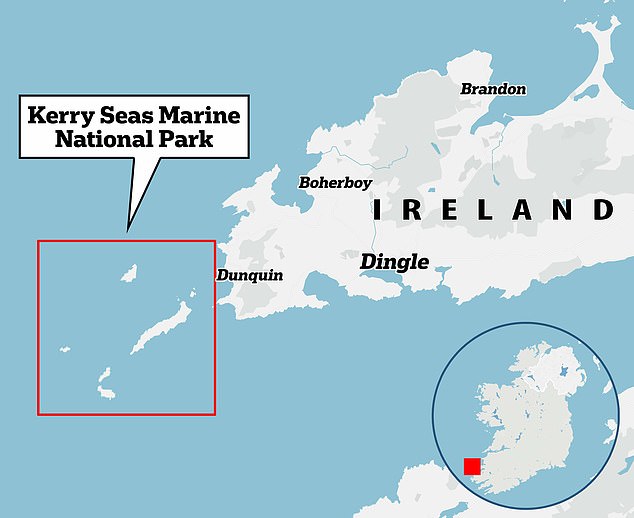
The shark was struck by a passing boat, despite being in Ireland’s first ever Marine National Park, an area off the coast of County Kerry known as a location where basking sharks congregate to feed and possibly breed.
Despite their size, these monumental sharks are actually gentle giants that feed exclusively on plankton.
Basking sharks swim endlessly in search of plankton-rich waters, using their enormous mouths to filter nutrients from the ocean.
While foraging, basking sharks can filter up to 2,000 tons of water per hour, removing hundreds of kilograms of plankton from the water every day.
However, this feeding behavior puts them at greater risk of being hit by passing boats.
Dr Nick Payne, Associate Professor in the School of Natural Sciences at Trinity College Dublin, explains: ‘Basking sharks filter-feed at the surface, like some whales, and this behaviour also makes them vulnerable to attack.’
The sharks are listed as endangered on the IUCN Red List and were officially granted protection under the Wildlife Act (1976) in 2022.
In addition, this year the Irish government established the country’s first national marine park.
The coast of County Kerry is a place where sharks often come to feed and probably also to mate.
Dr Payne continues: ‘Ireland remains one of the few places in the world where globally endangered basking sharks still congregate in significant numbers.
“But the fact that a shark we attached our ‘Fitbit’ to was hit within a few hours in this area underlines how vulnerable they are to boats and highlights the need for more education on how to prevent such attacks.”
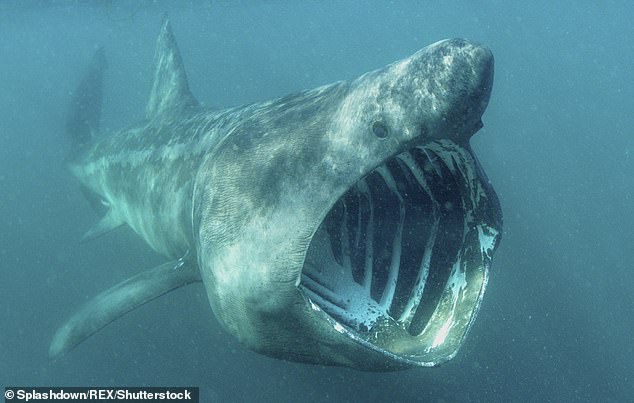
Basking sharks are listed as endangered on the IUCN Red List and have been officially protected since 2020. However, scientists are calling for legal guidelines to regulate the use of boats in areas where they gather.
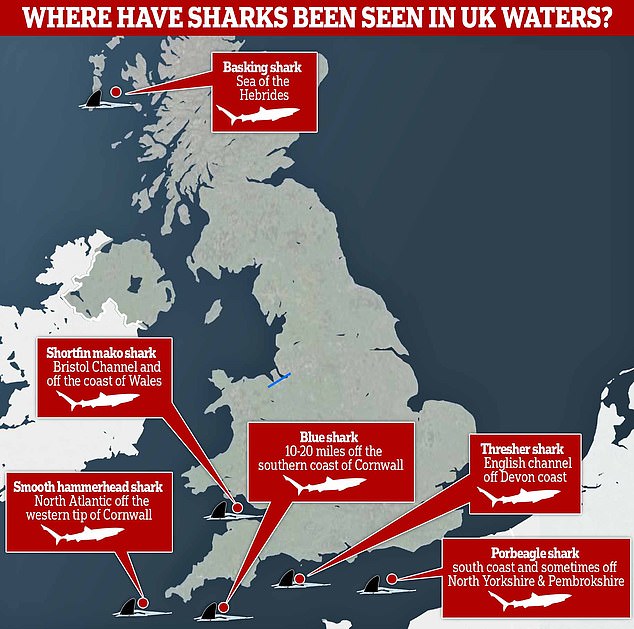
There are around 40 species of sharks found in UK waters, 21 of which live in our seas all year round
In their paper, published in Frontiers in Marine Science, the researchers outline the need for a legally binding code of conduct in areas where sharks gather.
However, in the absence of official guidelines, the researchers advise that anyone traveling through an area known to have basking sharks at the surface should travel with caution and at a slow speed.
Dr Alexandra McInturf from Oregon State University said: ‘This incident suggests that much more research is needed into the prevalence of ship strikes with basking sharks in the new National Marine Park and other hotspots along the Irish coastline.
‘Given that Ireland is one of the few places in the world where basking sharks are still abundant, answering such questions is vital to both our ecological understanding and the conservation of this globally threatened species.’

